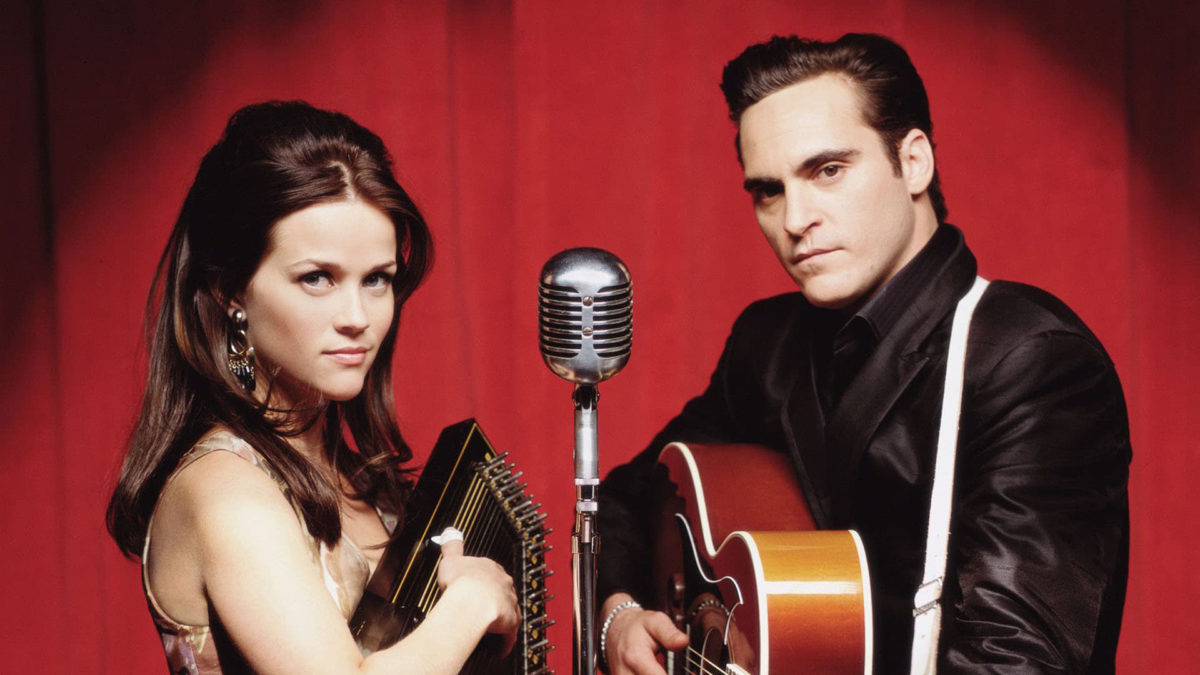Walk the Line has two undeniable things going for it: both lead performances. It’s tough to overstate just how good Reese Witherspoon as June Carter and Joaquin Phoenix as Johnny Cash are in this film, both fully inhabiting their iconic figures and imbuing them with complexity and heart and, in the case of Phoenix, real danger. Both were rightfully nominated for Oscars for their performances. Witherspoon won and Phoenix lost to Phillip Seymour Hoffman, but I attribute that to Phoenix’s brutal competition that year.
Other than the lead performances, there’s not much to recommend here. It’s all purely functional filmmaking and mind-numbingly generic biopic plot points.

The script is so bland that it did the seeming impossible: It made me actively less interested in Johnny Cash as the movie went along. Everything the first act does to hint at the genius and spiritual depth is tossed aside for the usual rise-fall antics: broken marriage, drug addiction, rock bottom, recovery with new humility, etc.
An exception: The movie really clicks when we’re hearing music (which is not often enough). No surprise given how good the source material is. Phoenix and Witherspoon, plus a few supporters as other famous figures like Jerry Lee Lewis and Elvis, sound convincing and energetic as icons of early rock and roll. My favorite moment of the movie is early on when Cash dares to embrace his wounded soul and unconventional style: After blowing an audition with some dull gospel music, he performs a gut-wrenching version of “Folsom Prison Blues” — and it’s the only moment that came close to giving me chills throughout the whole film.

I think the biggest reason I have no particular affection for Walk the Line is that it has no interest in making us care. Its story is not a coherent emotional arc, particularly in its second half. It’s just some stuff that happens. I suppose that’s the nature of a biopic, to some extent: long plateaus of troubled success tend to be a lot less narratively rich than unexpected rises. But I think the challenges run deeper than that, too: James Mangold gives no indication of how he thinks the audience should feel during Cash’s rough patch or his courtship with Carter. It’s oddly vacant of voice, as if he trusts the plot itself is enough. (It’s not.)
Outside of narrative aimlessness, Mangold does solid, unremarkable work as the director, though he’s a bit too reliant on close-up shots. There’s decent flavor for both the rural scenes and the music clubs. (The terrific period details help in that regard.) And Mangold gives Phoenix and Witherspoon plenty of room to work and light up the screen — the real key.
But it’s too little. There’s just not enough competence to make up for how hackneyed Walk the Line is. Witherspoon and Phoenix get it most of the way towards “good,” but not quite.
Is It Good?
Nearly Good (4/8)
Follow Dan on Letterboxd or Twitter. Join the Discord for updates and discussion.

